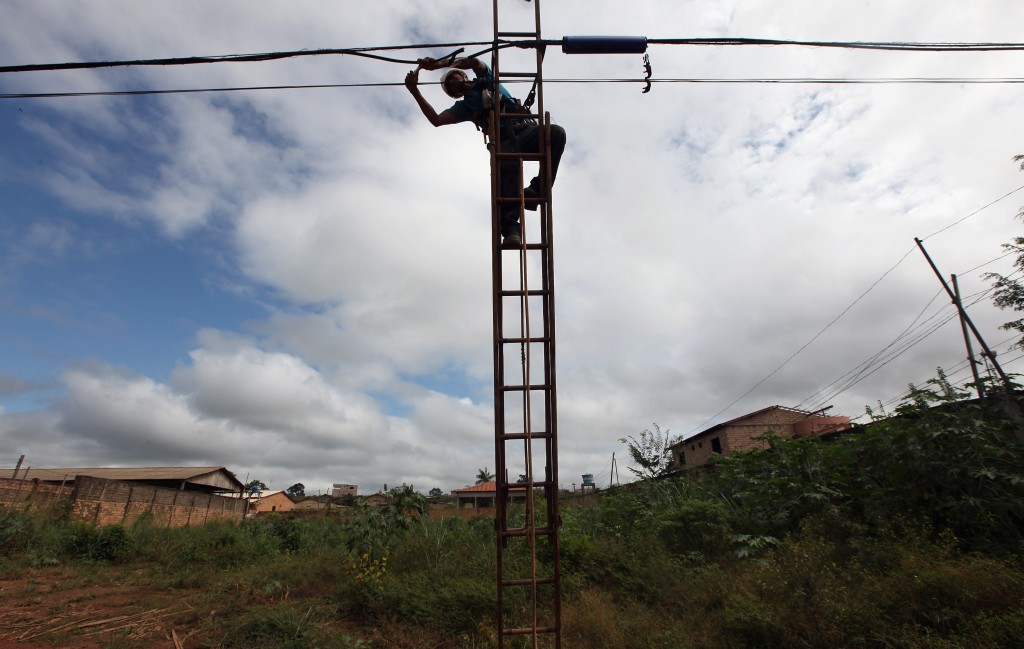 Towards Understanding How Corruption Impacts the Quality of Electricity Supply to End-Users in Emerging and Developing Economies
Towards Understanding How Corruption Impacts the Quality of Electricity Supply to End-Users in Emerging and Developing Economies
This article provides a synopsis of a paper submitted to the IAEE/USAEE Best Student Paper Award Competition.
On average, a fourth of all electricity produced in low-income countries was lost during transmission and distribution in the year 2000, [1] and significant losses persist today. But the story isn’t just about country wealth. The power crises in developing countries—which are characterized not only by low rates of electricity accessibility but also unreliability where the infrastructure does exist—are symptoms of much deeper problems. Losses remain most significant in countries characterized by relatively high economic, social, and political risk. [2] Figure 1 broadly illustrates how stronger governance (as measured by the average of the World Bank’s six countrywide governance indicators) corresponds to lower electricity losses.
Losses refer to the electricity injected into a transmission and distribution grid that is not paid for by final end-users. They can also refer to financial losses (as opposed to electrons) resulting in poor power supply. Some are technical (physical) in nature (caused by losses in transmission or deficiencies in operations or physical infrastructure), but others (and the majority, in some cases) are widely assumed to reflect non-technical inefficiencies (commercial losses) resulting from actions outside of the physical power system. Common causes of non-technical losses (NTL) can include electricity theft, non-payment, and poor recordkeeping—significant problems in many countries.
NTL can overload generation units and lead to over-voltage, which can adversely impact the quality of supply, leaving utilities without true estimates of the quantity of electricity to supply to both legal and illegal customers. Frequent power interruptions can lead to brownouts and blackouts and significant economic and revenue losses, impeding growth.
Although an impressive set of literature on the topic exists, the determinants of (non-technical) losses and their implications still are not entirely well understood as they transcend the boundaries of strictly the electricity sector. The roles of governance and corruption have emerged as critical elements in explaining electricity sector performance, and more generally, patterns of development. Infrastructure operations remain particularly vulnerable to corrupt activities. Researchers and decision-makers have therefore become increasingly interested in exploring how to reduce its impacts.
Our research uses an unbalanced pseudo-panel covering survey data from firms in 121 countries from 2006 to 2010 to study the impacts of corrupt activities of private enterprises on the quality of electricity supply to end-users in emerging and developing economies. [3] Results suggest that when firms offer informal gifts or payments in return for an electricity connection, the overall quality of electricity supply decreases as measured by increased monthly power outages, higher percentages of electricity coming from back-up generators, and higher estimated losses specifically due to electricity outages as a percentage of total sales. We also find that female participation in firm ownership decreases the chance that a firm will decide to offer a bribe for an electrical connection, and that market competition decreases the magnitude of bribes offered to public officials to ‘get things done’.
Studies on corruption and the resulting rent seeking were pioneered in the 1960s and 1970s. More recently, however, the focus has been on the causes and economic consequences of corruption, particularly as they impact developing countries. In general, corruption can worsen productivity, increase the size of the informal economy, increase inequality, and reduce growth, investment, and income. Petty corruption in particular—bribes for service delivery in which utilities offer illegal connections in return for payment—can be a significant obstacle for electricity service provision.
Practitioners and academics have sought to tackle this issue, but significant losses persist. One attempt, mostly in the 1990s, was privatization. Despite its success in some countries, performance fell short of expectations in others due partially to corruption and largely due to other aspects of power sector reform. Some of these challenges can be associated with insufficient institutional and regulatory capacity, and the more general concern of governance.
Improving electricity reliability around the world remains a priority with important implications for economic and social development, but one characterized by vast complexities.
Acknowledgements: The paper submission benefited from invaluable insights and comments from: Dr. Doug Arent and Dr. Morgan Bazilian of the Joint Institute for Strategic Energy Analysis (JISEA), National Renewable Energy Laboratory (NREL), and Dr. Harrison Fell of the Colorado School of Mines.
Jacquelyn Pless is a graduate student in energy economics at the Colorado School of Mines. She also works as a Research Program Participant for the National Renewable Energy Laboratory’s (NREL) Joint Institute for Strategic Energy Analysis (JISEA), most recently researching issues related to global green growth strategies and improving energy access in Sub-Saharan Africa. Previously she was an energy policy specialist at the National Conference of State Legislatures (NCSL) focusing on natural gas, energy security, and renewable energy policy.
[1] Kenny C, Søreide, T, 2008. Grand Corruption in Utilities, Washington, DC: The World Bank. Available at: https://openknowledge.worldbank.org/bitstream/handle/10986/6326/WPS4805.pdf?sequence=1.
[2] Smith T, 2004. Electricity theft: a comparative analysis. Energy Policy 32; 2067-76.
[3] Data used in the analysis include the World Bank’s Enterprise Surveys, World Development Indicators, and Worldwide Governance Indicators.
—
Breaking Energy is proud to introduce the student voice to our growing community of thought leaders. After all, the next generation of energy industry employees, regulators, legislators, financiers and academics are those now emerging from energy-related graduate and PHD programs around the world.
As such, we have begun publishing student-generated content in partnership with the International Association of Economics/US Association of Economics, as well as content written by students attending various educational institutions and programs. We want Breaking Energy to be a valuable forum in which to share ideas, network, promote student research and gain exposure to potential employers.

